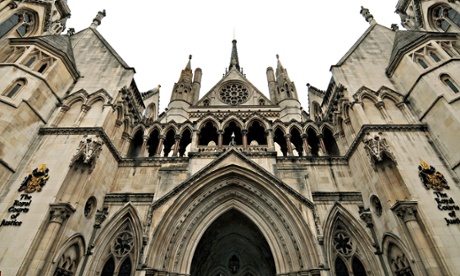A six-year-old British girl who was born to a surrogate mother using an anonymous donated egg and sperm from her biological father has lost her case in the European court of human rights to have her father named on her birth certificate.
In a complex case where five people were involved in her birth – a same-sex male couple, one of whom is her biological father, a surrogate mother and her husband and the anonymous egg donor – the European court of human rights ruled the case was “manifestly unfounded”.
The court ruled that although the girl’s biological father is not named on her birth certificate she is not wholly deprived of a legal relationship with her biological father.
The girl, known as H, argued along with her litigation friend, the same-sex partner of her biological father, that UK laws breached her right to respect for her private life under article 8 of the European convention on human rights.
The girl lives with her biological father, known as A, and his same-sex partner, known as B, and is in regular contact with the surrogate, known as C, and her husband, known as D.
At the moment her birth certificate states the surrogate mother who carried her as an embryo, and the surrogate mother’s husband, are her “mother” and “father” in accordance with rules under the UK’s Human Fertilisation and Embryology Act.
The girl’s case argued that the parts of UK surrogacy laws relating to the automatic registration of the husband of the surrogate mother as her “father” on her birth certificate were outdated and violated her right to her identity, specifically her right to have an accurate birth certificate.
The Human Fertilisation and Embryology Act states that no other person is to be treated as the father of the child. However, it is possible to apply for a parental order. Once this is made, the birth will be reregistered to record the intended parent(s) as the legal parent(s). The certificate is similar to a long-form birth certificate.
This parental order can only be made with the unconditional agreement of the woman who carried the child and the man who is the biological father.
In the case of girl H, the surrogate mother and her husband did not consent to the making of a parental order so the biological father could not be recognised as the girl’s legal father. The girl was born in 2016 and lives in London.
In 2015, A and B entered into a surrogacy arrangement with C and D, a married couple. C subsequently became pregnant using a donated egg and sperm from A.
Before the girl was born there was a breakdown in relations between the couples. As a consequence, the surrogate mother and her husband did not initially inform the same-sex couple about the birth until after it was registered.
In December 2016 a judge in the family court ordered both couples should have parental responsibility for the girl.
The court made a child arrangements order declaring the girl should live with A and B, who should make all of the day-to-day decisions for her, as well as decisions concerning her education, medical treatment and “all other parenting decisions”; that her name should be changed to incorporate the surnames of A and B; and that C and D should have regular contact with her throughout the year. The court of appeal subsequently dismissed C and D’s appeal against that decision.
The girl’s case argued that she was denied the social and emotional benefits of having legal recognition of her biological father. It said that although A and B had parental responsibility for her, this lacked the quality of long-term certainty that legal parenthood had and, unlike legal parenthood, it would come to an end when she was 18.
Dr S Chelvan, from the 33 Bedford Row chambers and lead counsel for the girl, said: “We’re clearly disappointed with the result for H, who will now have to live with a birth certificate inaccurately recording who her actual father is. Ironically, this decision places clear weight and importance on the sovereignty of the UK parliament by the Strasbourg court – a position clearly in conflict with this government’s drive to push through the bill of rights.”
A government spokesperson said: “We are pleased with the decision by the European court in this case, which recognises the strength of the UK system of birth certification and the ability to transfer legal parenthood after a surrogacy arrangement.”











